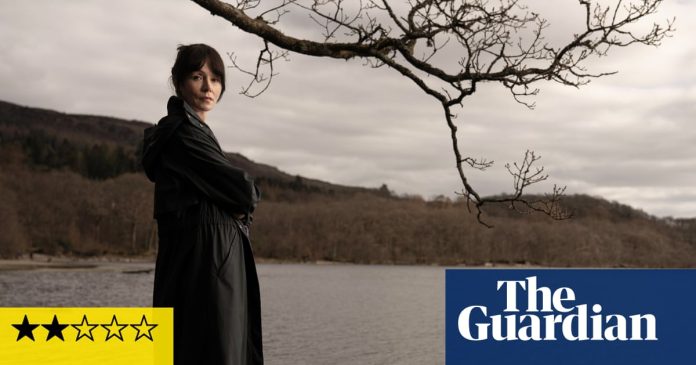Holidays can be murder. Regular domestic life often smothers a festering seam of incompatibility in a relationship, or a fault in an outwardly solid family dynamic. But trap people together for a week or two somewhere far away and there’s nowhere to hide. In Summerwater, a forbiddingly bleak drama written by John Donnelly and based on Sarah Moss’s novel, each of the six rain-lashed lochside cabins contains a uniquely unhappy household-on-holiday that is, on one particular day, about to endure a reckoning.
We start, as far too many dramas do, with characters being interviewed in the near future by the police. There has been a fire, but we won’t know who started it, whose cabin it was in and who died until episode six. In between is an interlinked anthology, the same day seen again and again from different perspectives. First we shadow Justine (Valene Kane), a wife and mother of two preteens.
Although it improves slightly as the series goes on, once viewers who are generous enough to stick around have got used to its bewildering tone, Summerwater reveals all its flaws in this opening episode. The central problem is that it can’t replicate the detailed inner monologues that were the book’s main selling point, and – having almost entirely ditched Moss’s state-of-the-nation political commentary – it doesn’t know what to offer instead. It lands on a sort of allusive psychodrama, with a lot of baleful blank stares and shots of Scottish trees and water looking indefinably threatening, all set to a shimmering whine of a score. Flashbacks help us piece together some kind of explanation for why Justine is so distant from her emotionally inadequate husband Steve (Daniel Rigby) and their kids, and why her obsessive long runs around the holiday village are punctuated with her trying to dispose of evidence of a crime: back in her normal life, a new colleague being given a job Justine had coveted has triggered a breakdown and a reckless campaign of revenge.
There is a resonant story in there somewhere about a woman overwhelmed by the expectations of herself and others, at home and at work, but we know this mainly because Justine suddenly announces it near the episode’s end. Before that is the unsettling spectacle of a character apparently having a severe mental health episode, causing her to behave in extreme and inexplicable ways.
Similarly sketchy and frustrating are subsequent tales about a couple of empty nesters (Dougray Scott and Shirley Henderson) haunted by paths not chosen and pushed to desperation by her serious illness; a teenage boy (Calum Ross) whose first relationship has ended in humiliation in front of his peers at school; and a young eastern European couple (Anna Prochniak and Arnas Fedaravicius) who work in the nearby hotel that owns the cabins. At the end of the day we are forced to repeatedly relive, the immigrants, discriminated against by their employers and othered by the British holidaymakers, annoy everyone by playing hardcore house music too loud and too late. This looks likely to be someone’s fatal tipping point.
All of them are phenomenally unhappy people in cartoonishly grim situations, their ability to connect with us stifled by the show’s weakness for melodramatic acting at the expense of narrative substance. Everyone’s backstory is not only too basic for us to care about it but also riddled with implausibility: too often we are left wondering why people are behaving in the way they are, a problem not helped by Summerwater’s occasional tilts towards other genres. A brief use of In Dreams by Roy Orbison suggests Lynchian mind-horror might be about to make our quibbles over weak plotting irrelevant, but that vibe is fleeting. An element of the supernatural, in the form of a mysterious, dilapidated hut in the woods that has a strange influence on all who enter, needed either to feature much more or not at all. In these small doses, it’s nothing more than another annoying loose end.
Although Summerwater isn’t devoid of redemptive moments, and its effort not to stick to the template of crime mysteries powered by buried secrets is admirable, it ends up as a drama that makes you want to back out of the room slowly and carefully. Hard truths emerging on tense holidays might be a universal experience, but those cabins are just a bad trip.







